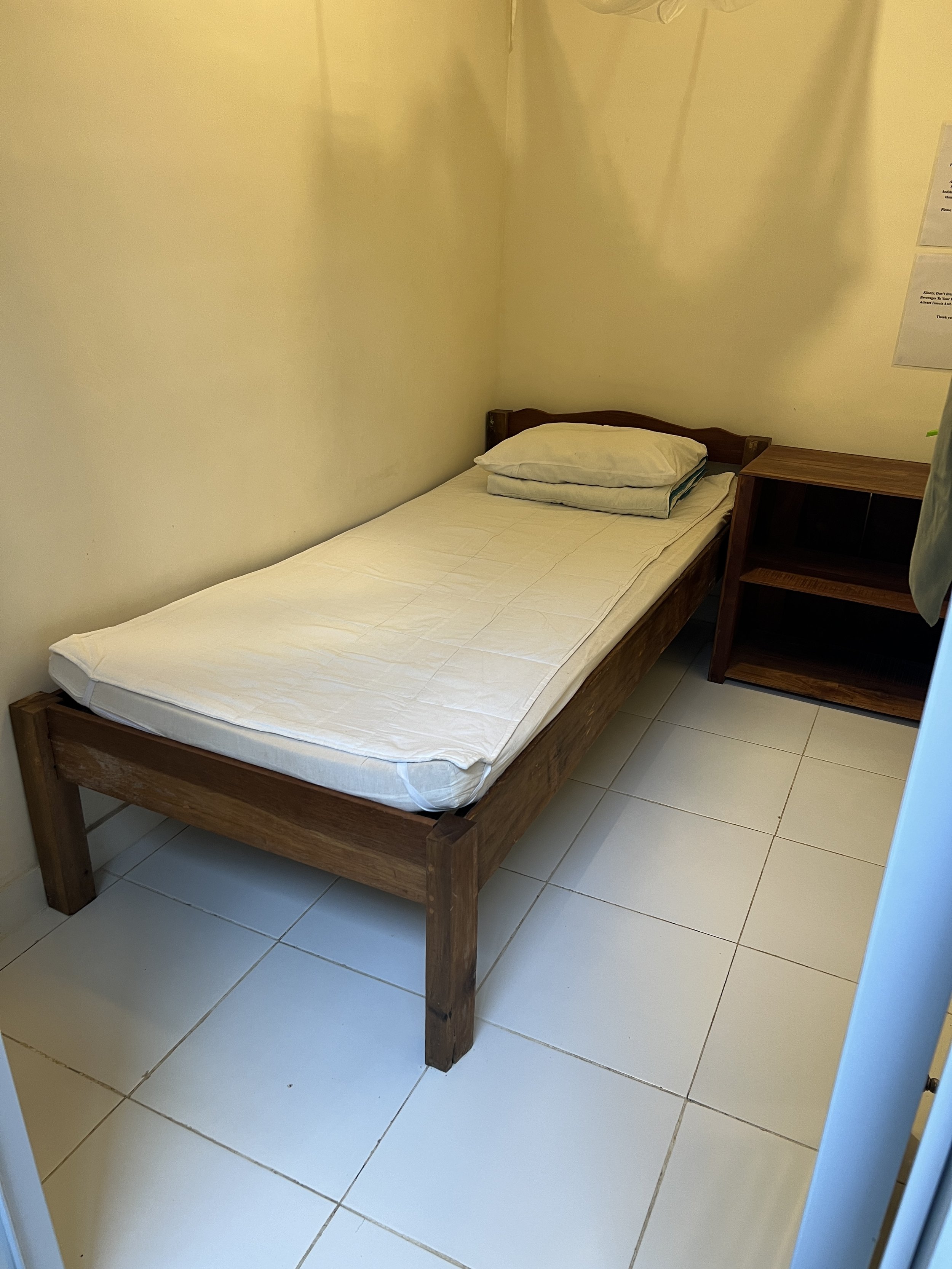Avoiding Burnout With Silence
10 days of silence, no technology, no reading or writing and 5-10 hours of sitting meditation.
Could you do it?
I just did!
I recently completed a 10-day Vippasana Course and it was by far one of the hardest things I’ve ever done! Being silent was the easiest part, the toughest bit was the ‘not doing’, something I and I know a lot of others struggle with.
We’re so conditioned to work hard, not take breaks and soldier through, even at the expense of our health.
As the Dalai Lama so famously put it, “Man sacrifices his health in order to make money. Then he sacrifices money to recuperate his health.”
So I did the ‘retreat’ (camp could be a better term) to prevent burnout for the most part.
I could feel the signs, the feeling of anxiety “I’m not doing enough”, the guilt whenever I wasn’t working that I should be, and when I was working the FOMO that I should be out living life.
Before setting up Remote Rebellion I was an employee working 40 hours a week. I never once experienced these feelings. I did my job well, but I was able to switch off after work. I had this vision that once I had my own business I’d work 2-4 hours a day and spend the rest of my days surfing and sipping coconuts in a hammock. I laugh at how naive I was!
Don’t get me wrong, I love what I do- I get to help people to change their lives by having the freedom to work remotely and live life on THEIR terms! How lucky am I? But because I’m so passionate about what I do, I often give too much at the expense of my health.
The term ‘burnout’ often gets overused, like when people say “I’m depressed” when they’re simply feeling low. Fortunately, I could feel myself heading in a direction way before official burnout signs began.
Burnout isn’t something you get from just working too many hours, either.
It’s a state of emotional, physical, and mental exhaustion due to prolonged stress, characterised by overwhelming fatigue, cynicism, detachment, and feelings of ineffectiveness. Unlike ordinary stress, which might still hold a glimmer of control and resolution, burnout leaves individuals feeling helpless, drained, and devoid of motivation, with a negative impact on work, social life, and health. It's marked by an array of symptoms including persistent tiredness, reduced immunity, mood changes, and a stark decrease in personal satisfaction and productivity, necessitating timely intervention to prevent long-term consequences.
Here are the signs that you could be on your way to burnout if you don’t do something:
Fatigue and Sleep Issues: Persistent tiredness, insomnia, or disrupted sleep patterns, even after resting.
Physical and Emotional Distress: Physical symptoms like headaches or stomachaches, alongside feelings of anxiety, depression, and heightened irritability.
Cognitive Challenges: Noticeable decline in concentration, memory, and attention, affecting daily tasks and decision-making.
Disengagement and Negativity: Loss of interest in work and personal activities, increased pessimism, and emotional detachment from social and professional relationships.
Performance Decline: Reduced productivity, diminished quality of work, and feelings of ineffectiveness, leading to a sense of failure or inadequacy.
And the factors that could be contributing to these are:
Excessive Workload: Long hours and high demands without adequate breaks can lead to stress and burnout.
Lack of Control and Recognition: Feeling powerless over your work situation and lacking acknowledgement for your efforts can contribute to burnout.
Poor Work Relationships and Unfair Treatment: Strained relationships with colleagues, isolation, and perceived inequities can exacerbate stress levels.
Values Mismatch and Unrealistic Expectations: A disconnect between personal values and job requirements, along with unattainable goals, can lead to disillusionment and burnout.
Work-Life Imbalance and Insufficient Support: Struggling to balance professional and personal life, along with a lack of support from management, can significantly contribute to burnout.
Recognise any of these?
I’m not suggesting you go and do a 10 Day Silent Retreat, but if your job is affecting your health so drastically consider not waiting around for the ‘perfect’ opportunity to come along- make steps to make a change, sooner rather than later.
If you’d like some help working out what that looks like and how to take back control of your life by getting a job that aligns with your values and gives you the freedom to work from where you’re happiest, get in touch with us here at Remote Rebellion.
“I want back control of my life!”
Oh, in case you were wondering what the sleep arrangements were like 👇🏼
Simplicity at its best 😉
Stay rebellious,
Michelle

